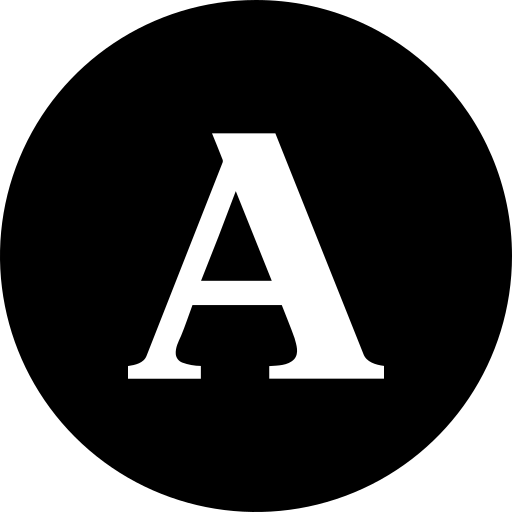Urban Living Labs
PhD Research
2018-2023

GENERAL PROJECT DESCRIPTION
In my doctoral research, I deal with social transformation processes in rural areas and how they materialise in prototypes. In particular, I focus on project communities that engage in the development of their regions, are based on self-initiative and build an alternative vision of their futures. Through a field study in north-eastern Germany, together with my own material investigations with 3D printers, tinkering in an open wood workshop and renovating a campervan, I investigate who is involved in the transformation processes, what is happening, and how is it happening. Throughout the thesis, I pursue the question of practical knowledge (know-how) about the transformation of the future, which, in the face of a world in change, is itself in flux. With this thesis, I draw on previous work in design anthropology, STS and assemblage research, design and planning research, environmental history, and the practical turn in the cultural and social sciences.
In my doctoral research, I deal with social transformation processes in rural areas and how they materialise in prototypes. In particular, I focus on project communities that engage in the development of their regions, are based on self-initiative and build an alternative vision of their futures. Through a field study in north-eastern Germany, together with my own material investigations with 3D printers, tinkering in an open wood workshop and renovating a campervan, I investigate who is involved in the transformation processes, what is happening, and how is it happening. Throughout the thesis, I pursue the question of practical knowledge (know-how) about the transformation of the future, which, in the face of a world in change, is itself in flux. With this thesis, I draw on previous work in design anthropology, STS and assemblage research, design and planning research, environmental history, and the practical turn in the cultural and social sciences.
Academy of Art and Design Basel
&
Leuphana University Lüneburg
Funded by Swiss National Science Foundation
&
Leuphana University Lüneburg
Funded by Swiss National Science Foundation
Urban living labs in rural areas
On a field trip, I explored the maker culture of rural Northern Germany as part of her research within the project Commons in Design. During two months, she was living with the project cooperative „Wir Bauen Zukunft“ and studied their practices, mode of action and the broader community network (Open Source Ecology Germany, CoWorkLand, Lebendiger Landbau, and others). The community comprehends the co-existence of human and environment as a design problem and therefore is organised in sociocratic ways, conducts permaculture design workshops, and prototypes different kinds of energy cycles, like tiny houses, compost toilettes and aquaponic platforms.
Led by the question, how principles like open source, sustainability and resilience materialise, I investigated the phenomenon of “reality-laboratories of transformation” – elaborated, self-initiated and digitally informed maker spaces with a strong focus on eco-social transition.
▷ Talk at symposium Open Materials, Weizenbaum Institut, 2019.
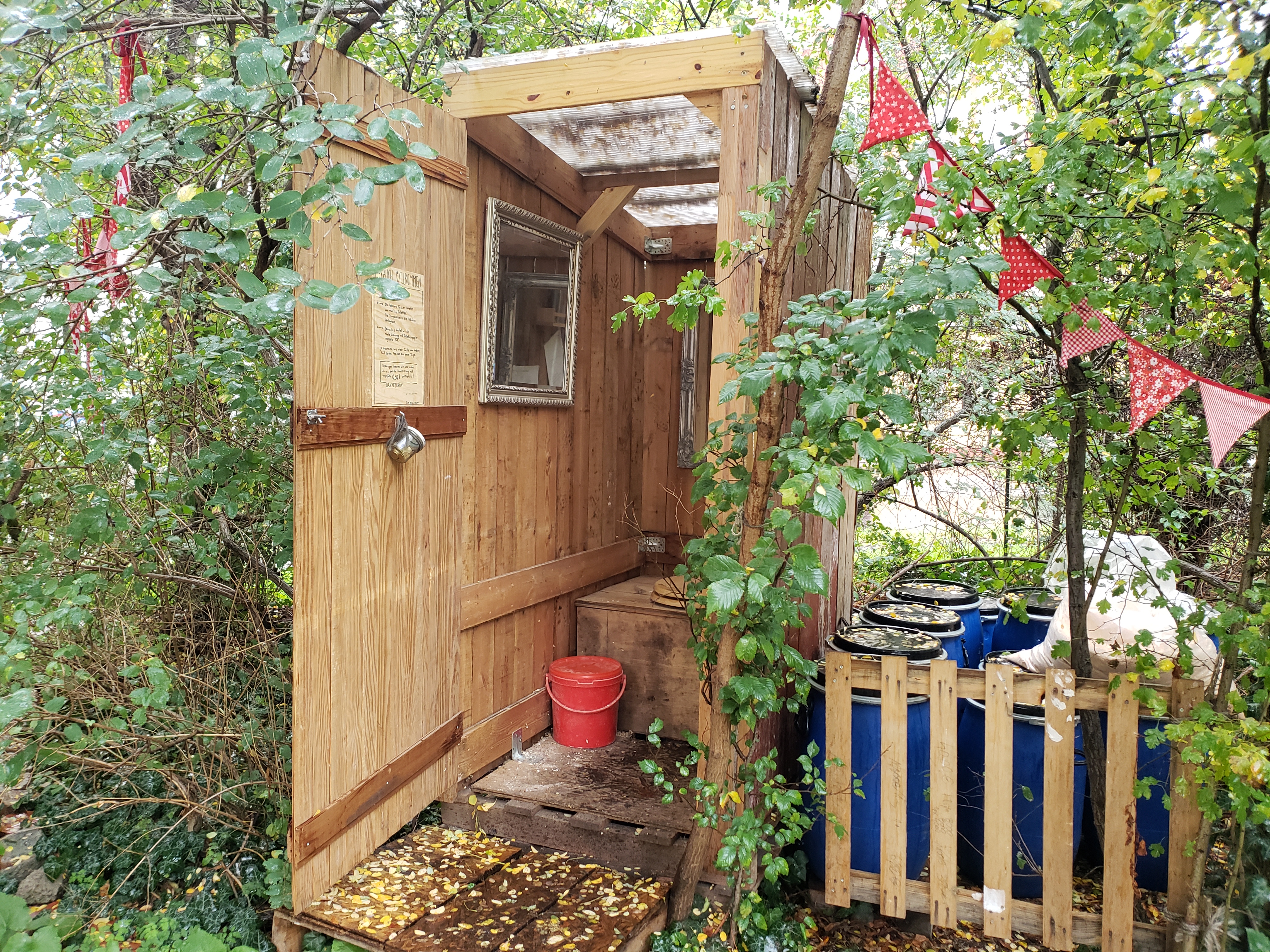
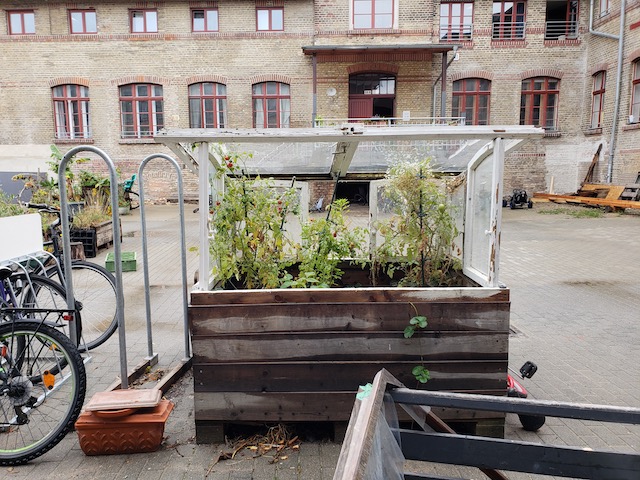

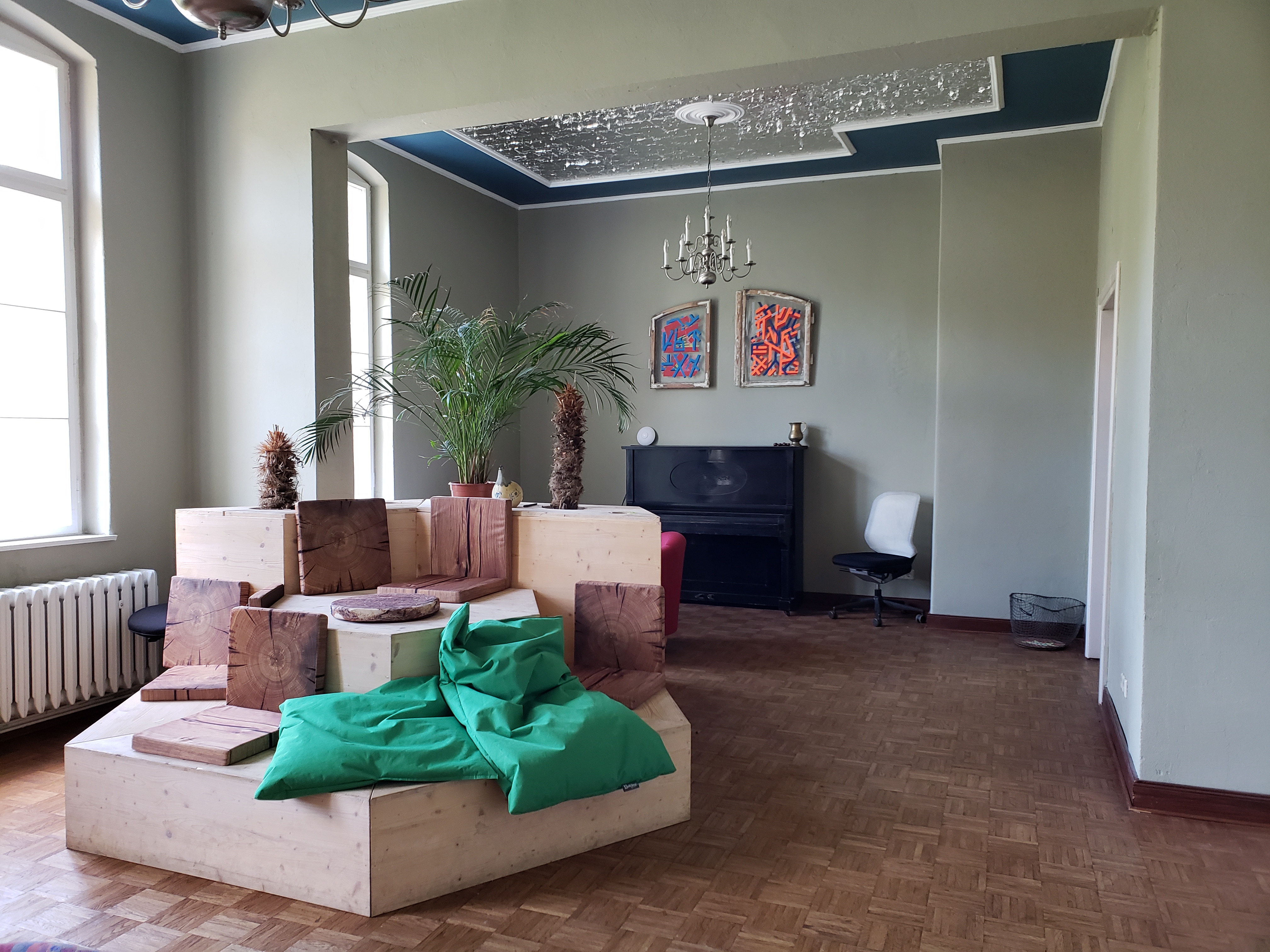
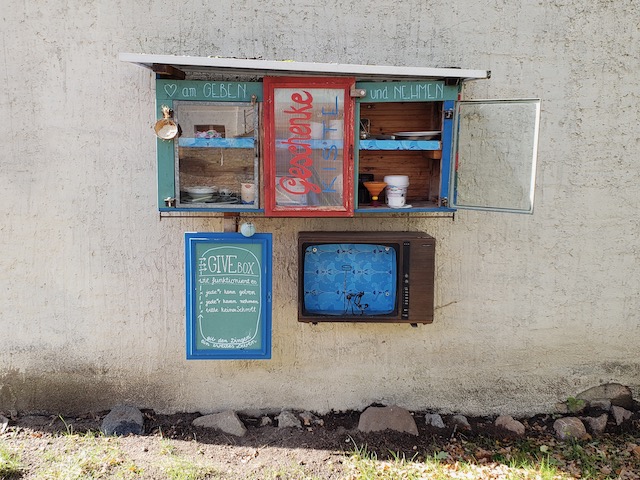
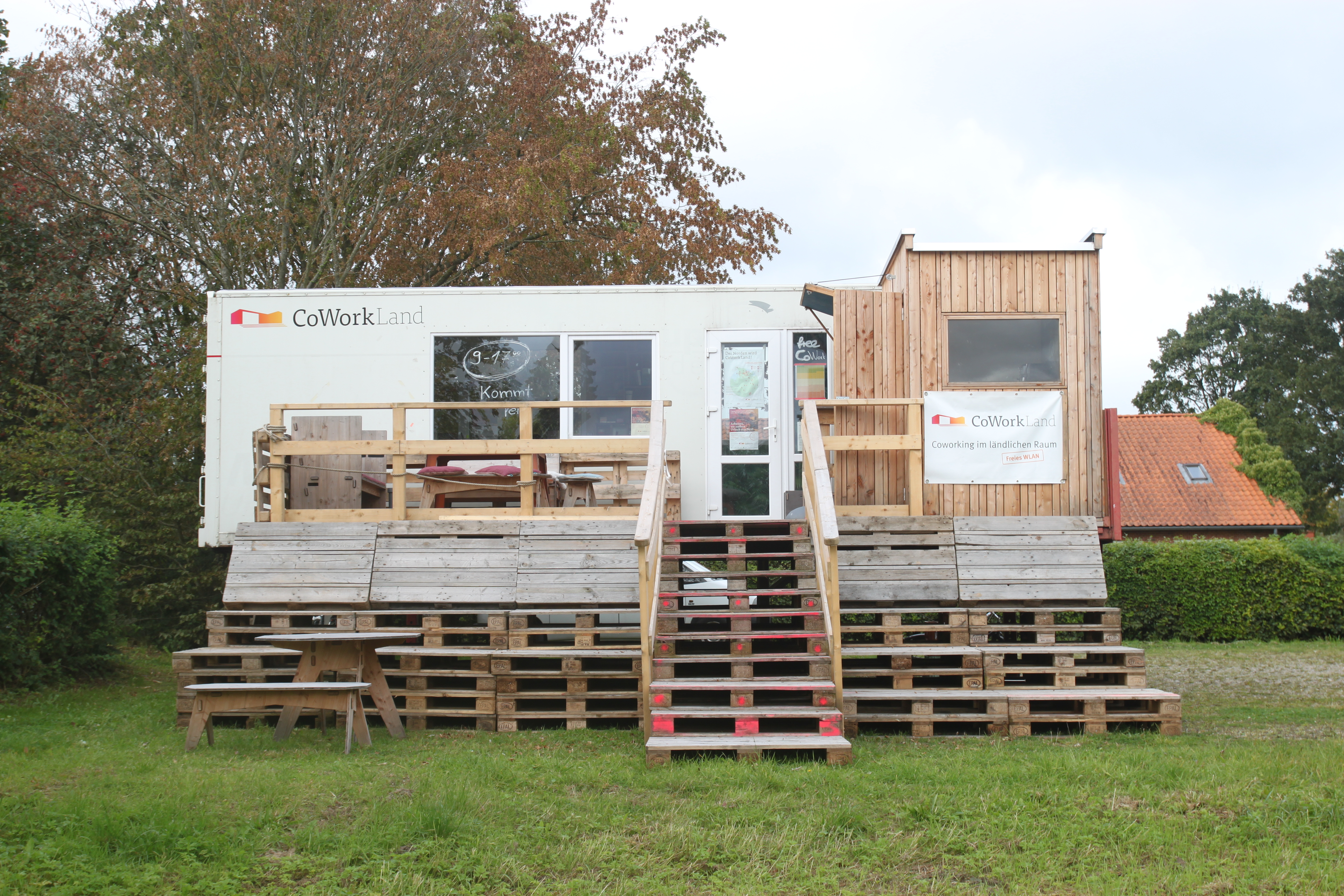
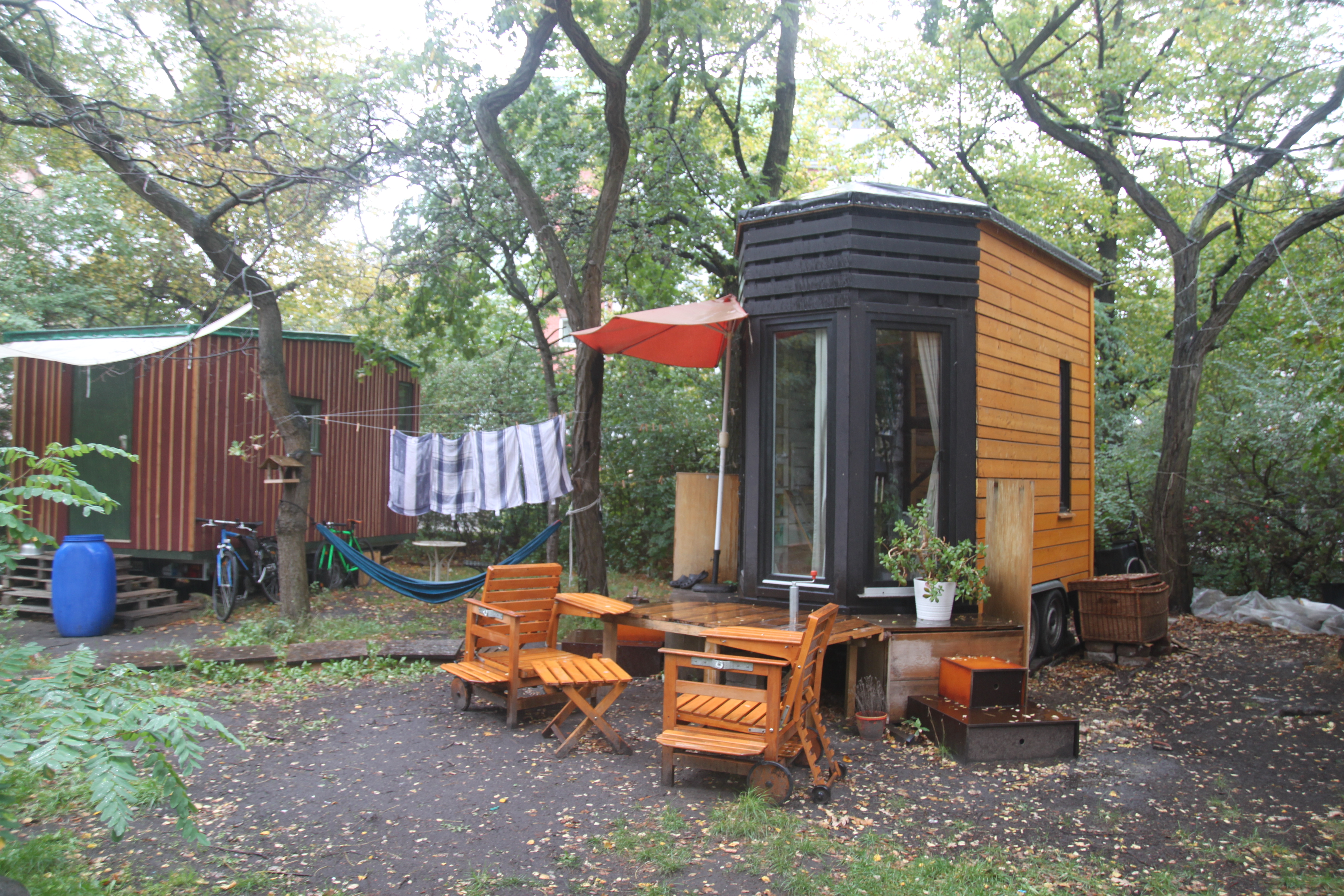
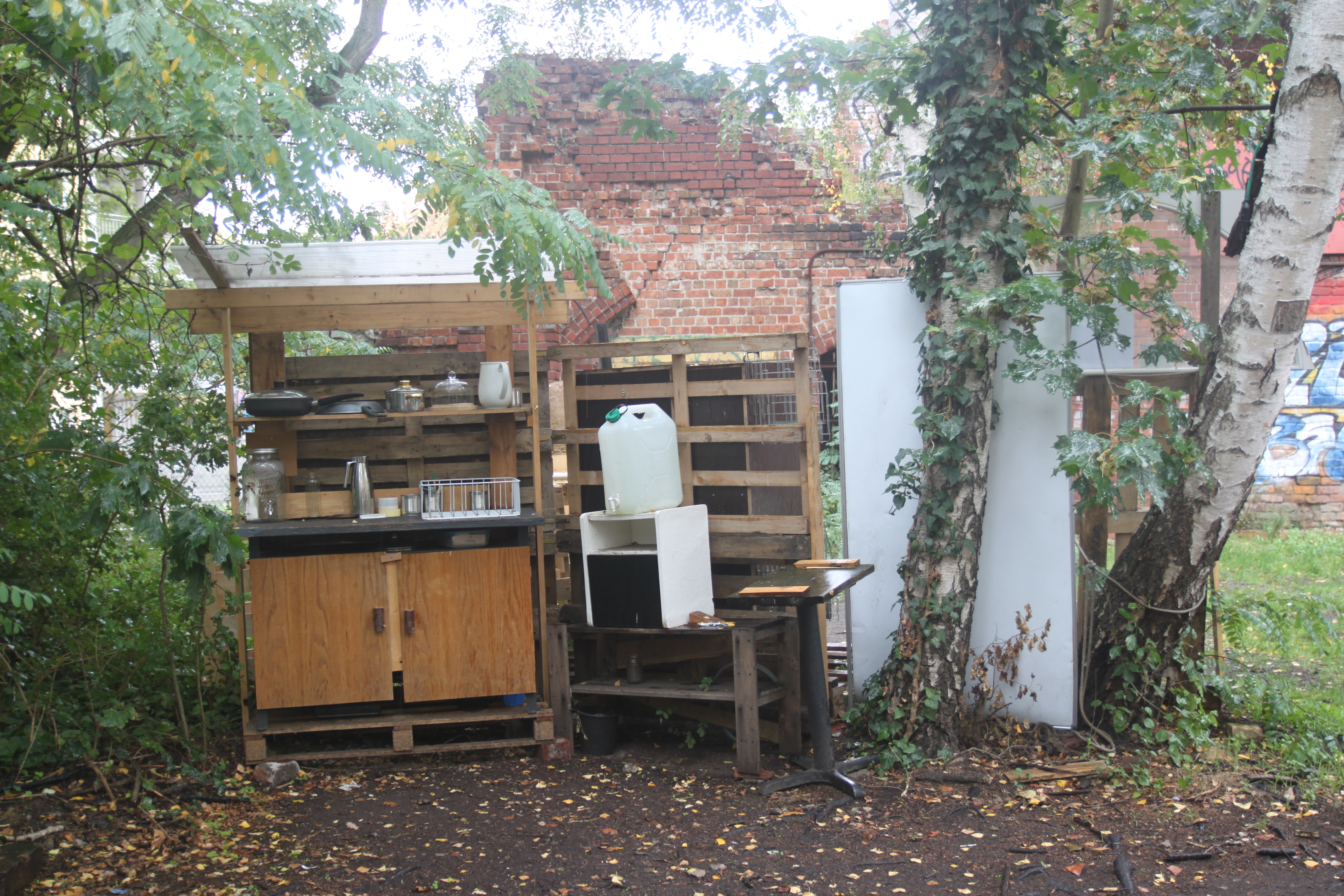


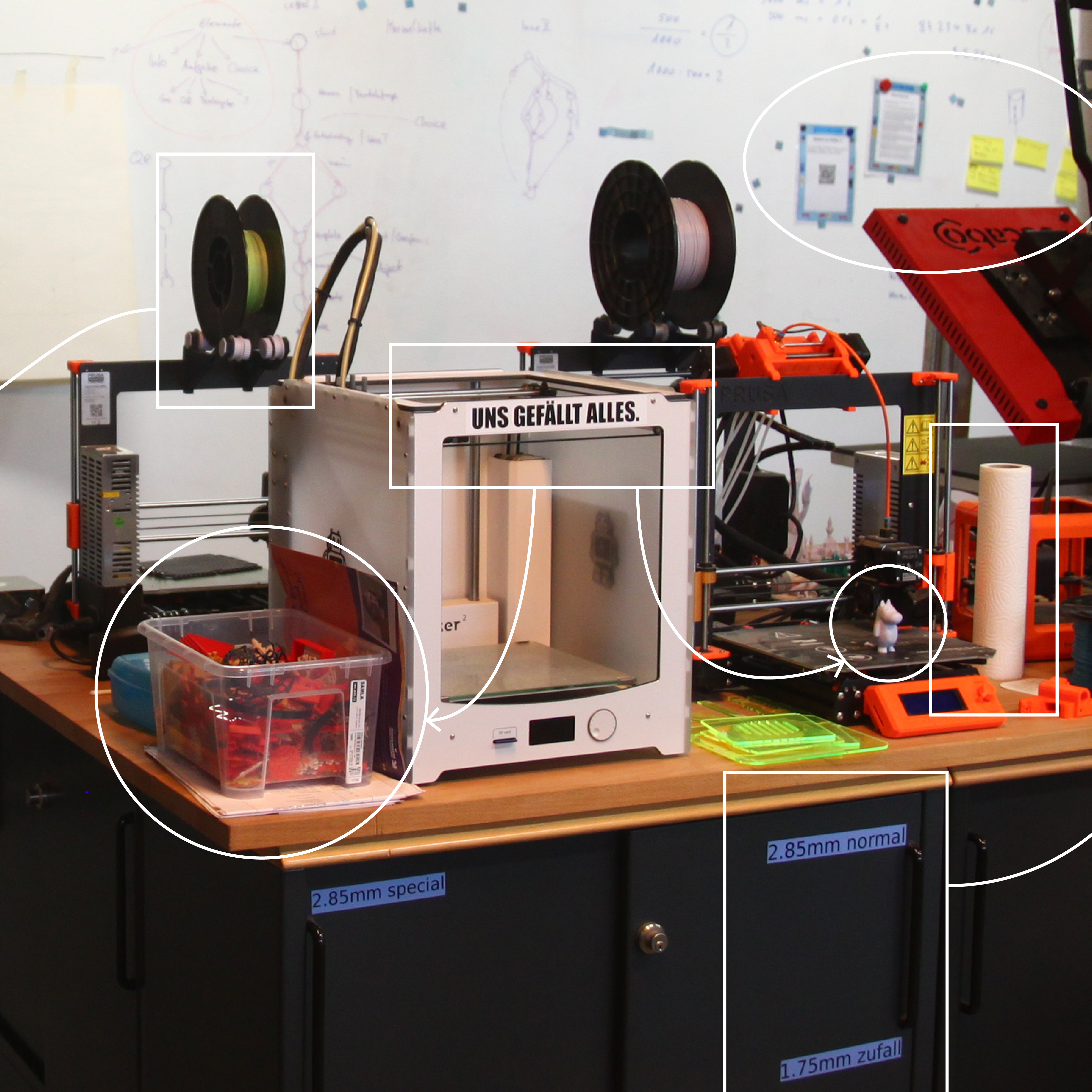
Printing Utopia
„… The 3D printer is a “projection screen” for the eco-social maker movement. It signifies a desire for networked collaboration, ecological and social participation, political empowerment, and socioeconomic transformation. Yet the 3D printer is not producing anything that fulfils such a comprehensive and disruptive potential. While it has become a profound agent for a commons-based future that aims to solve the global challenges of modernity, it is a tool, rather than an agent of the maker movement.“
▷ Unmaking – Against General Applicability. In: Loes Bogers, Letizia Chiappini (eds): Critical Makers Reader. Institute of Networked Cultures, Amsterdam 2020.
▷ Printing Utopia, contribution to symposium: Re-imagining the futures of 3D printing in society, Karlsruhe Institute of Technology (KIT), 2021.
▷ Printing Utopia: The domain of the 3D printer in the making of commons-based futures, in Design&Culture Journal, 2022.
Composting Toilet and Island Garden
„… Durch das Selbermachen und die Erfahrung der eigenen Handlungsfähigkeit wird in Projekten wie dem Inselgarten, eine schwimmende Plattform, auf der unterschiedliche Modelle für Pflanzenbewässerungssysteme installiert wurden, der empfundenen Ohnmacht und Ungewissheit ein Gefühl von Wirksamkeit entgegengesetzt. In dem Workshop “Inselgarten”, in dem es darum geht, einen öko-sozialen Wandel selbstwirksam zu erleben, dient das Prototyping dem Greifbarmachen von Möglichkeiten. Ich habe sie im Verlauf mehrerer Jahre beobachtet, wie sie ohne Wartung immer mehr von der umgebenden Vegetation eingenommen wurde. Es ist offensichtlich, dass die erbauten Bewässerungssysteme nicht in beabsichtigter Weise funktionieren. Womöglich war das aber auch gar nicht die Absicht des Workshops. – Worum aber geht es beim Prototyping von Zukunftsvisionen dann?”
▷ Design Beyond Creativity, lecture at UID Climate Group, Umeå Institute of Design, 2022.
▷ Inselgarten und Komposttoilette, chapter in Rodatz et al. (eds): Wie gestalten wir Gesellschaft?, Bielefeld: Transcript (expected 2023).

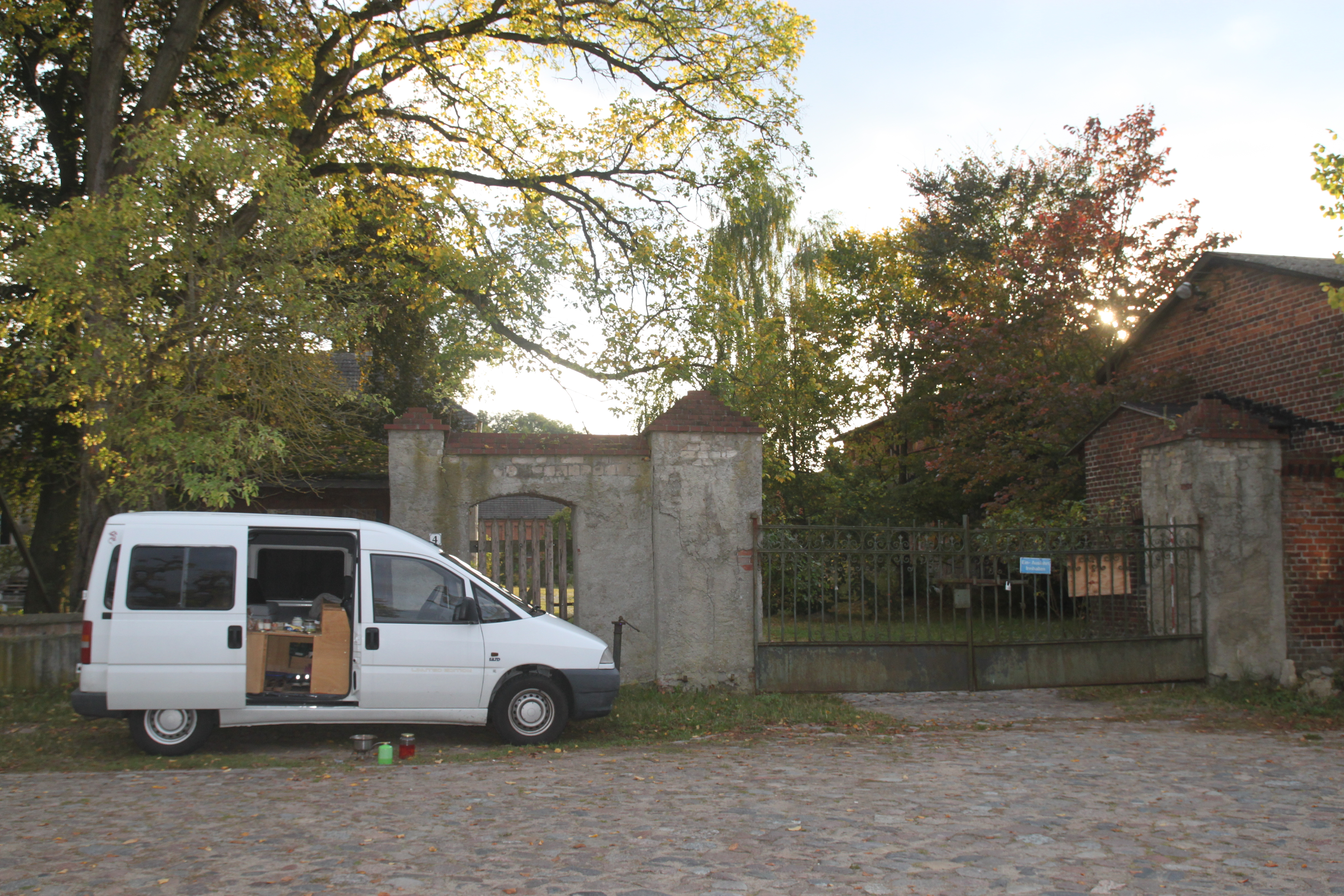
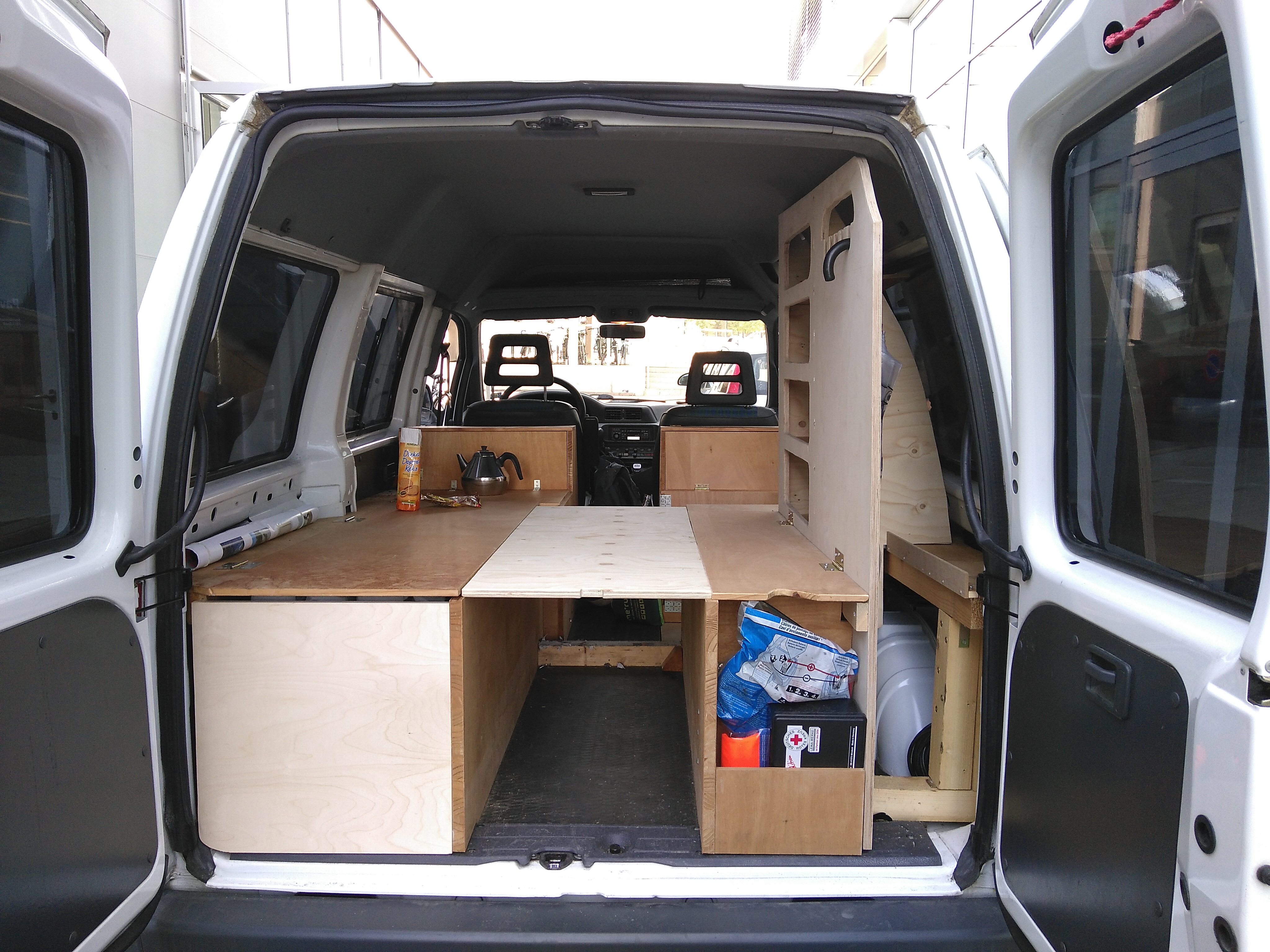
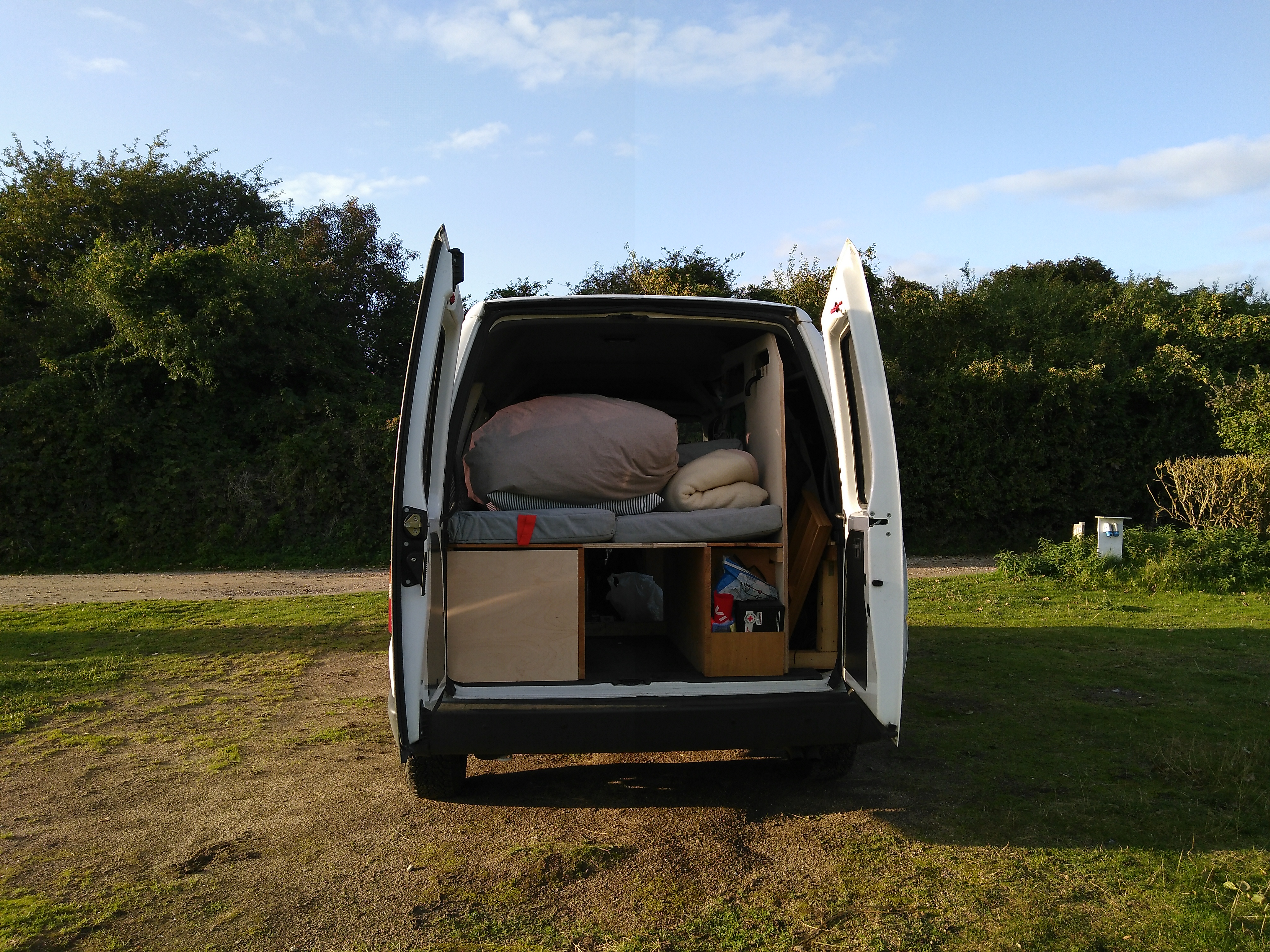
My Van is My Method
„ …Das forschende Reisen mit dem Van hat eine unerwartet kritische Rolle in meiner Forschung eingenommen. Er hat es mir ermöglicht mich für Unvorhersehbares zu öffnen und der Idee der DIY Futures über mehrere Stationen hinweg zu folgen. So konnte ich zum einen meine Fragestellung empirisch im ambivalenten Kontext einer strukturschwachen Region einer hochentwickelten Industrienation situieren. Meinen Untersuchungsgegenstand auf multiple Weise (wortwörtlich) zu erfahren, hat zum anderen meine Aufmerksamkeit auf die Körperlichkeit des Vorgehens gelenkt. Daraus habe ich das praxeologisch-gestalterische Argument eines forschenden Reisens formuliert, in dem ich vor allem den Erkenntnisgewinn durch das Tun herausstelle. Damit meine ich kein vor-theoretisches oder prä-reflexives Handeln, sondern im Sinne eines doing theory, ein Annähern der theoretischen Praktiken des Kritisierens an die kritisierten Praktiken. Bourdieu‘s Argument einer „negativen Logik der Praxis“ folgend, kann ich mich mit dem Van innerhalb aber auch jenseits der Wissenschaftsdichotomien positionieren und sie praxeologisch-gestalterisch transzendieren, um dadurch „die Theorieproduktion ständig und auf produktive Weise empirisch zu verunsichern und voranzutreiben“ (Schmidt 2011, 11).“
▷ Jahrbuch ICDP, HGK Basel.
